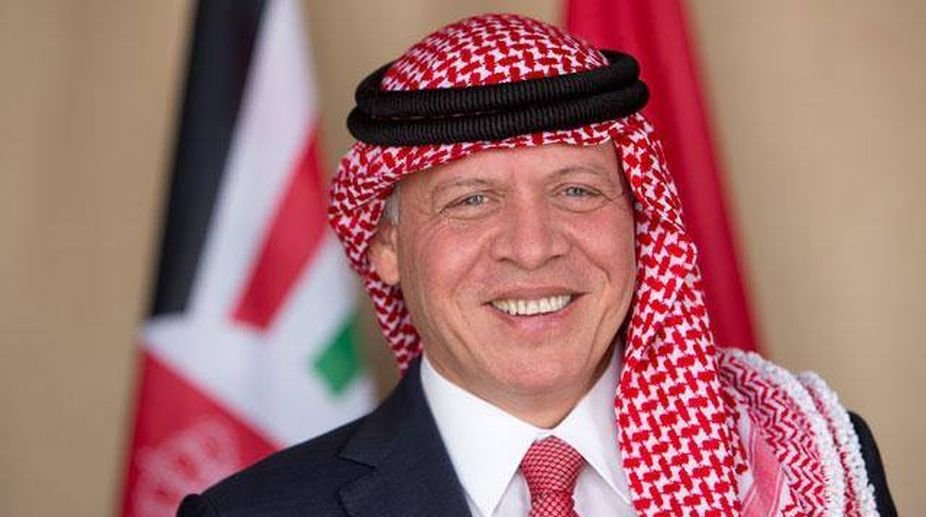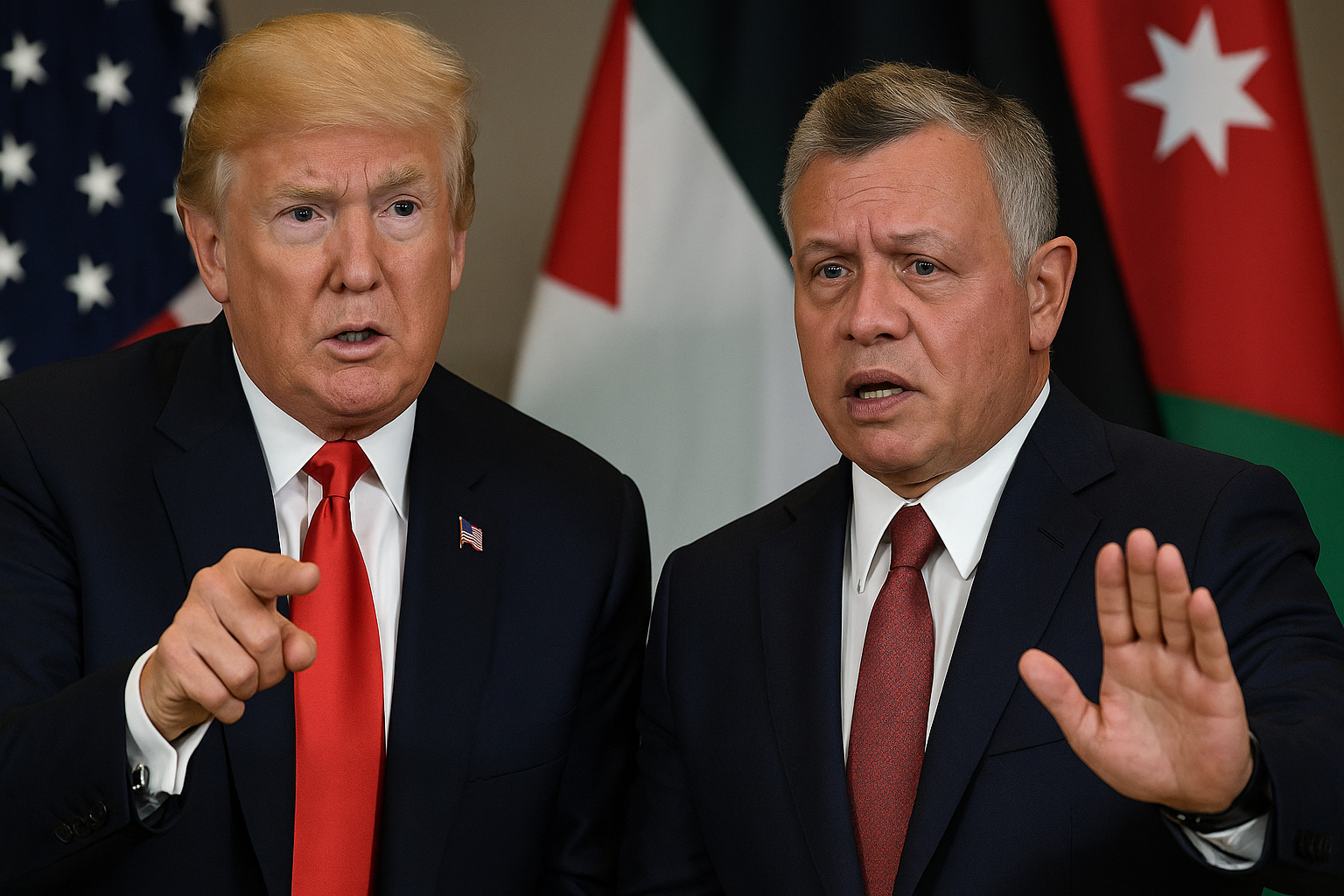The Trump ceasefire plan in Gaza has sparked concern across the Arab world, with King Abdullah of Jordan warning against turning peacekeeping into armed enforcement. He cautioned that sending foreign troops into Gaza could inflame tensions instead of easing them, stressing that peace should come through cooperation, not coercion.
King Abdullah of Jordan has voiced serious concern over the Trump administration’s ceasefire plan in Gaza. His remarks underline the deep unease among Arab nations about being drawn into a mission that could shift from peacekeeping to active combat. He made it clear that Jordan, and likely others, would reject any plan that required enforcing peace through military means.
The King explained that peacekeeping and peace enforcement are two entirely different things. Peacekeeping means helping maintain stability and supporting local law enforcement, like training Palestinian police forces to manage security. Peace enforcement, however, involves deploying foreign troops with weapons into volatile areas, which could quickly spiral into violence.
Abdullah said Jordan would never agree to send troops into Gaza for such a mission. With more than half of Jordan’s population being of Palestinian descent, any direct military involvement could create serious political and social backlash at home. “No nation wants to be dragged into Gaza’s internal conflicts,” he said, stressing that the situation requires diplomacy and careful planning, not armed intervention.
The Ceasefire Framework and Regional Reactions
The Trump ceasefire plan proposes a 20-point framework that includes the participation of Arab states and international partners. The plan suggests forming stabilization forces to train vetted Palestinian police units, with Jordan and Egypt playing advisory roles. It also outlines a process for Hamas to disarm and relinquish political control of Gaza — a goal that has long been seen as difficult to achieve.
King Abdullah questioned whether Hamas could truly give up its political influence. “We’ve heard promises before,” he said, hinting at skepticism based on years of failed agreements. Qatar and Egypt, who maintain direct communication with Hamas, appear more optimistic about their willingness to cooperate. Still, Abdullah maintained that Jordan’s involvement would remain limited to training and advisory support, not boots on the ground.
Jordan’s reluctance is rooted in both political sensitivity and historical experience. The country already hosts about 2.3 million Palestinian refugees from previous conflicts with Israel. Its proximity to the war-torn region makes it a natural stakeholder, but also a vulnerable one. “We can’t risk internal divisions or regional escalation,” Abdullah noted.

He emphasized that before any commitment, there must be full clarity on what the international forces are supposed to do. “Peacekeeping is acceptable,” he said, “but peace enforcement is a dangerous and unwanted path.” His statement mirrors the sentiment of several Arab governments that are cautious about foreign-led security arrangements in Palestinian territories.
A Growing Humanitarian Emergency
Beyond politics, King Abdullah shifted attention to the worsening humanitarian crisis in Gaza. He described the destruction there as heartbreaking and unacceptable. “It’s mind-boggling that the world allows this level of devastation to continue,” he said, describing the situation after personally leading three missions to drop aid from the air over Gaza.
Those missions delivered food, medicine, and essential supplies to civilians trapped in war-affected zones. The King said the scenes of desperation and ruin deeply troubled him and should alarm the global community.
Jordan has been one of the few Arab countries actively helping evacuate sick and injured Palestinians. In February, King Abdullah directly asked President Trump for assistance in evacuating 2,000 critically ill children from Gaza. Trump praised the effort as a “beautiful gesture” during their White House meeting. Since then, Jordan has received 253 children for medical treatment.
Across the region, more than 5,000 Gazans have been evacuated for care, mainly to Egypt, the UAE, and Qatar. But according to the World Health Organization, over 15,000 people including 3,000 children are still waiting for evacuation. The process, the WHO said, is painfully slow and tangled in bureaucracy.
Every patient and their guardian must go through extensive security checks by both Israeli authorities and host countries. Israel’s military coordination office, known as Cogat, insists that it prioritizes humanitarian cases but must maintain strict procedures to prevent threats during border crossings. Despite these assurances, delays persist, and for many patients, time is running out.
King Abdullah urged the international community to act faster. He said that without urgent action, Gaza’s suffering will grow even worse. “These are not just numbers,” he said. “These are human lives waiting for help that never comes.”
Balancing Politics and Humanity
The Trump ceasefire plan in Gaza tries to balance two difficult goals: stabilizing the political situation and addressing Gaza’s humanitarian disaster. But critics argue that the plan leans too heavily on security enforcement without considering the complex realities on the ground.
King Abdullah’s message is clear: any peace process must prioritize the people affected, not just the political optics. He reminded world leaders that peace can’t be forced at gunpoint it must be built through trust, cooperation, and sustained support for Palestinians.
He also warned that imposing military solutions could backfire, triggering more resentment and violence. “You can’t bring peace by force,” he said. “You can only protect peace that people themselves want.”
The King’s stance reflects the wider concerns of Arab states that have witnessed decades of failed attempts to manage the Gaza conflict. The repeated cycles of ceasefire, escalation, and collapse have left millions suffering and disillusioned.
As the Trump administration continues to work through its regional partners especially Qatar and Egypt the challenge remains how to make the plan credible to Palestinians and acceptable to their neighbors. Without that trust, experts believe the framework could meet the same fate as previous peace efforts.
The Path Ahead
King Abdullah’s warnings highlight a difficult truth: peacekeeping in Gaza requires not only political coordination but also moral clarity. The world can’t afford to blur the line between helping maintain peace and imposing it through force.
Jordan’s position is likely to influence other Arab governments that share similar fears about military involvement. While the Trump plan aims to end years of violence, its success depends on understanding local dynamics and respecting regional sensitivities.
For now, the King’s message stands as both a warning and a call for restraint. “If the world wants stability,” he said, “it must start with fairness, compassion, and real support for those who’ve suffered the most.”
Until a long-term, just solution is found for Israelis and Palestinians alike, he cautioned, true peace in the region will remain out of reach.
